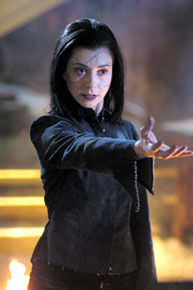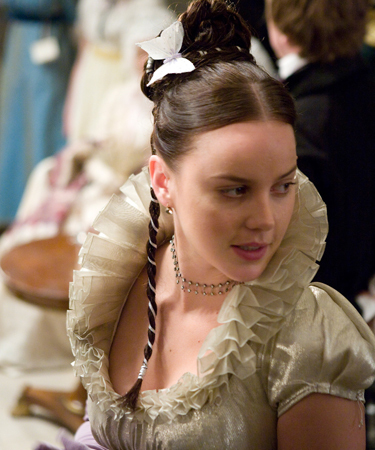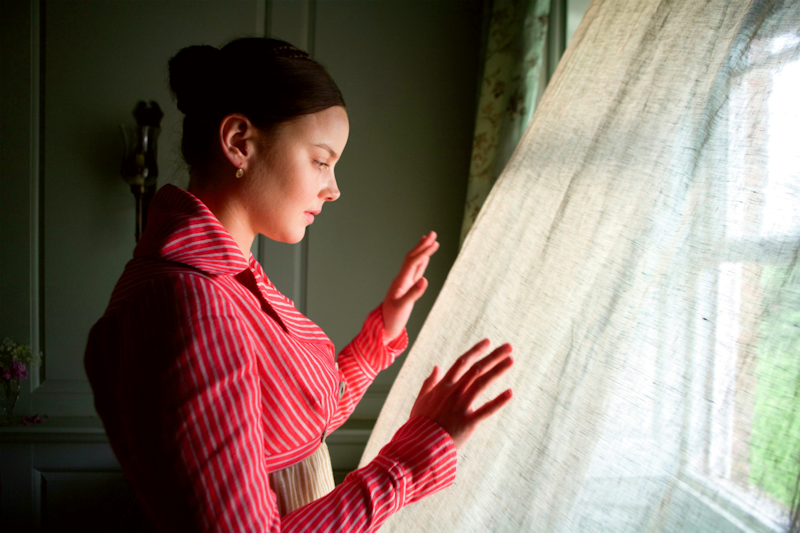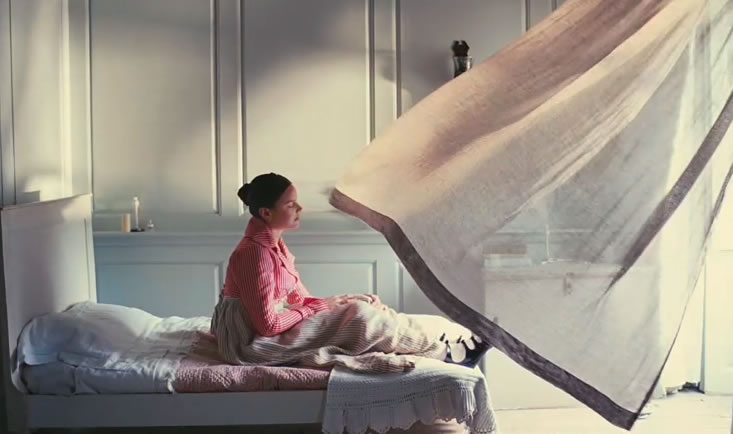“If it wasn’t for graft, you’d get a very low type of people in politics! Men without ambition! Jellyfish!”
Preston Sturges, screenplay for The Great McGinty
Archives for 2009
TT: So you want to see a show?
Here’s my list of recommended Broadway, off-Broadway, and out-of-town shows, updated weekly. In all cases, I gave these shows favorable reviews (if sometimes qualifiedly so) in The Wall Street Journal when they opened. For more information, click on the title.
Warning: Broadway shows marked with an asterisk were sold out, or nearly so, last week.
BROADWAY:
• Alfred Hitchcock’s The 39 Steps (comedy, G, suitable for bright children, closes Jan. 10, reviewed here)
• God of Carnage * (serious comedy, PG-13, adult subject matter, closes Jan. 3, reviewed here)
• Oleanna (drama, PG-13/R, adult subject matter, violence, reviewed here)
• South Pacific * (musical, G/PG-13, some sexual content, brilliantly staged but unsuitable for viewers acutely allergic to preachiness, reviewed here)
• A Steady Rain * (drama, R, totally unsuitable for children, closes Dec. 6, reviewed here)
• Superior Donuts (dark comedy, PG-13, violence, reviewed here)
OFF BROADWAY:
• Avenue Q (musical, R, adult subject matter and one show-stopping scene of puppet-on-puppet sex, reviewed here)
• The Emperor Jones (drama, PG-13, contains racially sensitive language, extended through Dec. 6, reviewed here)
• The Fantasticks (musical, G, suitable for children capable of enjoying a love story, reviewed here)
• Our Town (drama, G, suitable for mature children, reviewed here)
CLOSING FRIDAY IN STRATFORD, ONTARIO:
• The Importance of Being Earnest (comedy, G, reviewed here)
CLOSING SUNDAY IN ASHLAND, OREGON:
• The Music Man (musical, G, very child-friendly, reviewed here)
TT: Almanac
“Encounters with the real, in particular what we really feel, are something we generally try to avoid. Art mediates the encounter, allowing us to get nearer to our longing and our loss, to risk more, to dare more.”
Jeanette Winterson, “In Praise of the Crack-Up” (Wall Street Journal, Oct. 17, 2009)
CAAF: The new rules of engagement
This weekend I realized how much my reading habits have come to resemble my Internet-surfing. I skip from book to book, dipping in, skimming and grazing, as if each book were an article I was reading online. If the book isn’t amazing, I rarely get past the first quarter — let alone finish it. Of course, at least once in a while, I’m abandoning the book out of shrewish old age. I have less patience for terrible books than I used to. But most of the time, I have to admit, it’s not the books that are bad, it’s me: I’ve become a terrible reader.
The first, most obvious reason: Online reading has trained my eyes to be more peripatetic on the page. The favored online writing style is zippy and fast – you get the takeway even as your attention is skittering away, onto the next link. The other night as I was reading, I noticed my eyes were shifting up and down the page, instead of left to right, a sign that I read more on a monitor most days than on a page, but also a symptom that I was out of condition for any sort of complicated sentence: “Where’s your kicker, Henry James? Your bullets? Your boldfaced exclamations?” And my brain was roving around just as much as my gaze was: mentally rummaging in the kitchen cupboards (chips?), wondering if I had any new email (probably not), and brooding on my petty jealousies and everyday activities (endless).
The above has been well recorded in many places. With the next, I wonder if it’s strictly personal, or if others of you have noticed this about yourselves too. It’s the observation that the Internet for all its virtues — and let me interject here and say that I love the Internet, some of my best friends are the Internet, etc. — has given me an overly inflated sense of my own ability to learn and appreciate new things. I’ve always liked to read several books at once (do you want to read a book about volcanoes tonight, or a novel? Who knows? Better have them both with you!),  but this weekend I counted and I had some twenty books in different stages of being read around the house, ones I felt I couldn’t bear to return to the library or put back on their proper shelves because “I’m reading it.” I’ve fallen into the habit of bringing a stack of three to four into bed with me at night — picking them up from around the house as I turn off lights like a grocery shopper ambling through the produce section picking whatever pretty fruit strikes the fancy. On the one hand, thus has it always been — people who like books will have books in their bed, will have far more books on their reading list than they will ever finish, etc. On the other, I think when you casually read a couple hundred little news items, interesting posts and articles online in day, it get frightfully easy to carry a glib sense of engagement away with you from the computer — to want to click along to the next book whenever you’re bored. And on some deeper level, I wonder if the Internet with its ready and immediate access to anything I want to know, has given me a false sense that I’m capable of knowing it, i.e., that I can suck in all that knowledge like Evil Willow draining books at the magic shop. Even as my reading habits have gotten sloppier, have I come to think I’m someone who’s capable of reading three or four books before bed? That I’ll wake up and suddenly be the man who knew everything? Put another way: If the Internet is infinite, has it made me forget that I’m finite?
but this weekend I counted and I had some twenty books in different stages of being read around the house, ones I felt I couldn’t bear to return to the library or put back on their proper shelves because “I’m reading it.” I’ve fallen into the habit of bringing a stack of three to four into bed with me at night — picking them up from around the house as I turn off lights like a grocery shopper ambling through the produce section picking whatever pretty fruit strikes the fancy. On the one hand, thus has it always been — people who like books will have books in their bed, will have far more books on their reading list than they will ever finish, etc. On the other, I think when you casually read a couple hundred little news items, interesting posts and articles online in day, it get frightfully easy to carry a glib sense of engagement away with you from the computer — to want to click along to the next book whenever you’re bored. And on some deeper level, I wonder if the Internet with its ready and immediate access to anything I want to know, has given me a false sense that I’m capable of knowing it, i.e., that I can suck in all that knowledge like Evil Willow draining books at the magic shop. Even as my reading habits have gotten sloppier, have I come to think I’m someone who’s capable of reading three or four books before bed? That I’ll wake up and suddenly be the man who knew everything? Put another way: If the Internet is infinite, has it made me forget that I’m finite?
 Again, none of these are new habits of mind, but they feel exaggerated by my Internet use. So it’s with sorrow but determination that I announce I’m signing off of it forever. Ha ha, just kidding! But what I am doing is orchestrating a new reading regime, a sort of course correction, to make myself a better reader offline. I’ve used this system in the past when I felt like my Gemini brain had gotten disorderly, and it’s worked well. It’s to read one author and one author only for a month. No leaping around within the oeuvre, either. It’s one book at a time. Front to back. After a lot of thought and vacillation, I’ve decided November is Herman Melville month. Nothing but Herman until December.* So good-bye, Orlando, Lolly Willowes, Daniel Deronda, and Oryx and Crake; goodbye, Werner Herzog in Brazil and fascinating academic book about Russian Byronism; goodbye, Rebecca Solnit and Randall Jarrell; good-bye, promising if potentially infuriating book** about Charlotte and Emily Bronte’s Belgian school essays; good-bye I Lost It At The Movies; and even you, Nabby, good-bye. You’re all wonderful, but I will see you later.
Again, none of these are new habits of mind, but they feel exaggerated by my Internet use. So it’s with sorrow but determination that I announce I’m signing off of it forever. Ha ha, just kidding! But what I am doing is orchestrating a new reading regime, a sort of course correction, to make myself a better reader offline. I’ve used this system in the past when I felt like my Gemini brain had gotten disorderly, and it’s worked well. It’s to read one author and one author only for a month. No leaping around within the oeuvre, either. It’s one book at a time. Front to back. After a lot of thought and vacillation, I’ve decided November is Herman Melville month. Nothing but Herman until December.* So good-bye, Orlando, Lolly Willowes, Daniel Deronda, and Oryx and Crake; goodbye, Werner Herzog in Brazil and fascinating academic book about Russian Byronism; goodbye, Rebecca Solnit and Randall Jarrell; good-bye, promising if potentially infuriating book** about Charlotte and Emily Bronte’s Belgian school essays; good-bye I Lost It At The Movies; and even you, Nabby, good-bye. You’re all wonderful, but I will see you later.
* Allowable exceptions: My bookclub book for this month, Barbara Ehrenreich’s Bright-Sided; the rest of Sarah Hrdy’s Mother Nature (I’m almost through!); and any research books for the novel. But with the latter the same one at a time rule applies.
** Complete non sequitur but: I’ve noticed this trend among Bronte scholars to be snide about Charlotte, as if in order to properly appreciate Emily (or even Anne or Branwell) it were somehow necessary to knock Charlotte down several pegs. Juliet Barker, author of an otherwise excellent biography, I’m looking at you. And Elizabeth Hardwick, you too (except I love you so I’m not looking that hard). This makes me furious. Some day, I tell you … well, I’ll storm into a Bronte Society Meeting and create quite a scene.
UPDATE: Oh, the Internet. No sooner did I prepare this post then I saw The Elegant Variation has started a discussion on this same topic, using this essay by David Ulin as a jumping-off point.
TT: Snapshot
Duke Ellington plays Billy Strayhorn’s “Isfahan” in 1965, with Johnny Hodges on alto saxophone:
(This is the latest in a weekly series of arts-related videos that appear in this space each Wednesday.)
TT: Almanac
“I can’t think of anything more exciting than going to bed with a half-finished paragraph.”
Eric Hoffer, in conversation with Eric Sevareid (The Passionate State of Mind: Eric Hoffer, CBS, Sept. 19, 1967)
TT: It’s here
The first finished copy of Pops: A Life of Louis Armstrong arrived in today’s mail.
I’m going to have a hard time getting anything done today.
* * *
To celebrate the great day, here’s Satchmo and the All Stars in 1959:
CAAF: Bright pretty young things
Ever since I saw Bright Star, I’ve been wanting to go back and see it again. It’s a gorgeous and tough-minded film; I’ve seen it praised in a couple places for its “restraint” and while that feels like an appropriate description, it might, used in the context of a movie about John Keat’s love affair with Fanny Brawne, leave a reader with the impression that Bright Star is a soft or quiet film, which it most definitely isn’t. I think the restraint being praised is actually rigor; as if Campion had a bolt of silk and shot it through every yard or so with whalebone. Yes, it’s beautiful, but it also stands up straight.
For a more extensive critique, I direct you to Dana Steven’s review. For now I just want to ooh and aah over Janet Patterson’s costumes for the film, especially the ones worn by Fanny Brawne (played by Abbie Cornish). At the beginning of the movie we learn that Brawne makes her own clothes, and throughout the film her sewing is shown as her creative outlet, an expression of being on the level of a poem or a painting. Knowing this before the film, I thought this aspect of the Fanny character might feel overly intrusive and “herstory”-ish — one of those instances where a historic figure is given modern habits and attitudes just so the audience can commend her (and along the way, itself) for being so enlightened (e.g., The Duchess) — but within the universe of Bright Star, Fanny’s dressmaking seems like a true and inspired thing. Her dresses aren’t just garments then, they’re expressions of self, crucial bits of character development — and Patterson does an amazing job with them, making them a little ludicrous and over-the-top for the occasions on which they’re worn, but also completely beguiling and graphically sophisticated. Fanny may not always be dressed appropriately, but she has a marvelous eye for beauty.
I’ve been searching for stills from the film but can’t find many that do justice to the costumes. A couple, though:

A party dress worn early in the film. As Brawne tells Keats when she sees him at the party, “This is the first frock in all of Hampstead to have a triple-pleated mushroom collar.” Just out of frame: Her lilac gloves.

This costume, a striped jacket worn to a picnic on the day they first kiss, was one of my favorites. The strawberry color is so sharp and joyful.

Patterson also served as the film’s production designer, and, as shown in this still, there’s a lovely interplay between the costumes and their settings.
There’s more about the film’s scene-setting and costuming in the little clip below. After watching it, I desperately want to run off and go to work as some sort of Campion-Patterson apprentice/lackey/fabric finder.
* I’m already anticipating how much I’m going to be rooting for Patterson to win an Oscar for them.
